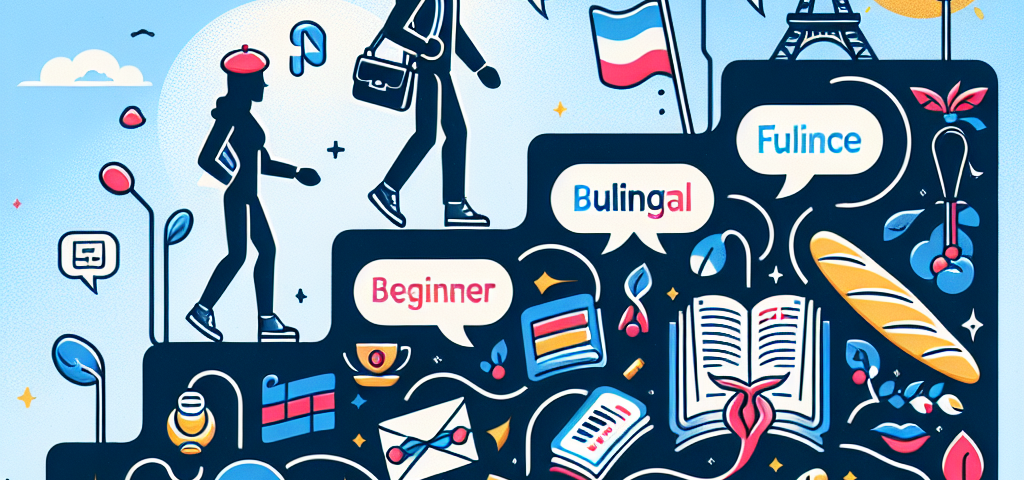
Countdown to Exam Day: Last-Minute Tips for French Final Exams
May 30, 2025
Punctuation Perfection: Essential Marks in French Writing
May 30, 2025
Learning a new language can be a rewarding journey, but for many, mastering conversation skills is the most daunting challenge. For those embarking on the path of French, structured approaches can make the process smoother and more effective. Here, we’ll explore practical strategies to transition from a novice to a confident conversationalist in French.
1. Establish a Strong Foundation
Master the Basics
Before diving into conversations, it’s essential to build a solid foundation. Start with basic vocabulary—common phrases, greetings, and essential verbs. Familiarize yourself with French pronunciation by listening to native speakers, using language learning apps, or watching French movies.
Grammar Essentials
Understanding basic grammar rules is crucial. Focus on subject-verb agreement, article usage, and common sentence structures. Online resources and language courses can provide structured lessons that explain these concepts clearly.
2. Immerse Yourself
Daily Practice
Incorporate French into your daily routine. Set aside time each day to practice speaking, reading, and writing. Even a brief, focused session can be more beneficial than infrequent, lengthy study periods.
Language Exchange
Find a language exchange partner—someone who is fluent in French and wants to learn your native language. Platforms like Tandem and HelloTalk can connect you with others globally. Regular conversations with a partner can enhance your speaking skills and boost your confidence.
Media Consumption
Engage with French media. Listen to French music, watch films with subtitles, or follow French podcasts. This exposure will not only improve your listening skills but also provide context for the language, making it easier to grasp nuances.
3. Focus on Conversational Skills
Phrasebooks and Dialogues
Utilize phrasebooks or dialogues focused on real-life situations. Practicing these scenarios can prepare you for everyday conversations, whether ordering food, asking for directions, or discussing hobbies.
Role-Playing
Role-playing can simulate real-life interactions and enhance your fluency. Practice different scenarios with a partner or through language classes, switching roles to get comfortable with various conversational contexts.
Question and Answer Sessions
Engage in Q&A sessions with yourself or a partner. Start with simple questions about daily activities (e.g., "Qu’est-ce que tu as fait aujourd’hui?" – "What did you do today?") and gradually progress to more complex topics. This practice promotes thinking on your feet and helps solidify vocabulary.
4. Utilize Technology and Resources
Language Learning Apps
Several apps, such as Duolingo, Babbel, or Rosetta Stone, offer structured language lessons that gradually build your skills. Many also include speaking exercises that can help hone your conversational abilities.
Online Communities
Join online forums and social media groups geared toward French learners. Websites like Reddit and language-specific Facebook groups can provide motivation, resources, and opportunities to practice.
5. Embrace Mistakes
Learning Mindset
Recognize that making mistakes is a natural part of the learning process. Instead of fearing errors, embrace them as opportunities for growth. Engage with native speakers who can provide constructive feedback, helping you improve your skills.
Reflect on Progress
Track your improvements regularly. Consider maintaining a journal in French, noting down new vocabulary and reflecting on your conversational experiences. This self-reflection can offer insights into areas for further practice and development.
6. Set Realistic Goals
SMART Goals
Establish Specific, Measurable, Achievable, Relevant, and Time-bound (SMART) goals for your language learning journey. Break down your goals into manageable tasks—attending a conversation group, learning a set number of new words each week, or even holding a five-minute conversation in French.
Celebrate Your Achievements
Recognizing and celebrating milestones, no matter how small, will keep you motivated. Whether it’s successfully navigating a conversation or understanding a French film without subtitles, take the time to appreciate your progress.
Conclusion
Transitioning from a beginner to a bilingual speaker in French takes dedication and structured approaches. By following these strategies, you’ll create a comprehensive framework for developing your conversation skills. Remember, consistency is key, and the journey itself can be as enjoyable as reaching fluency. Embrace the challenge, stay engaged, and soon you’ll find yourself conversing confidently in French. Bon courage!

